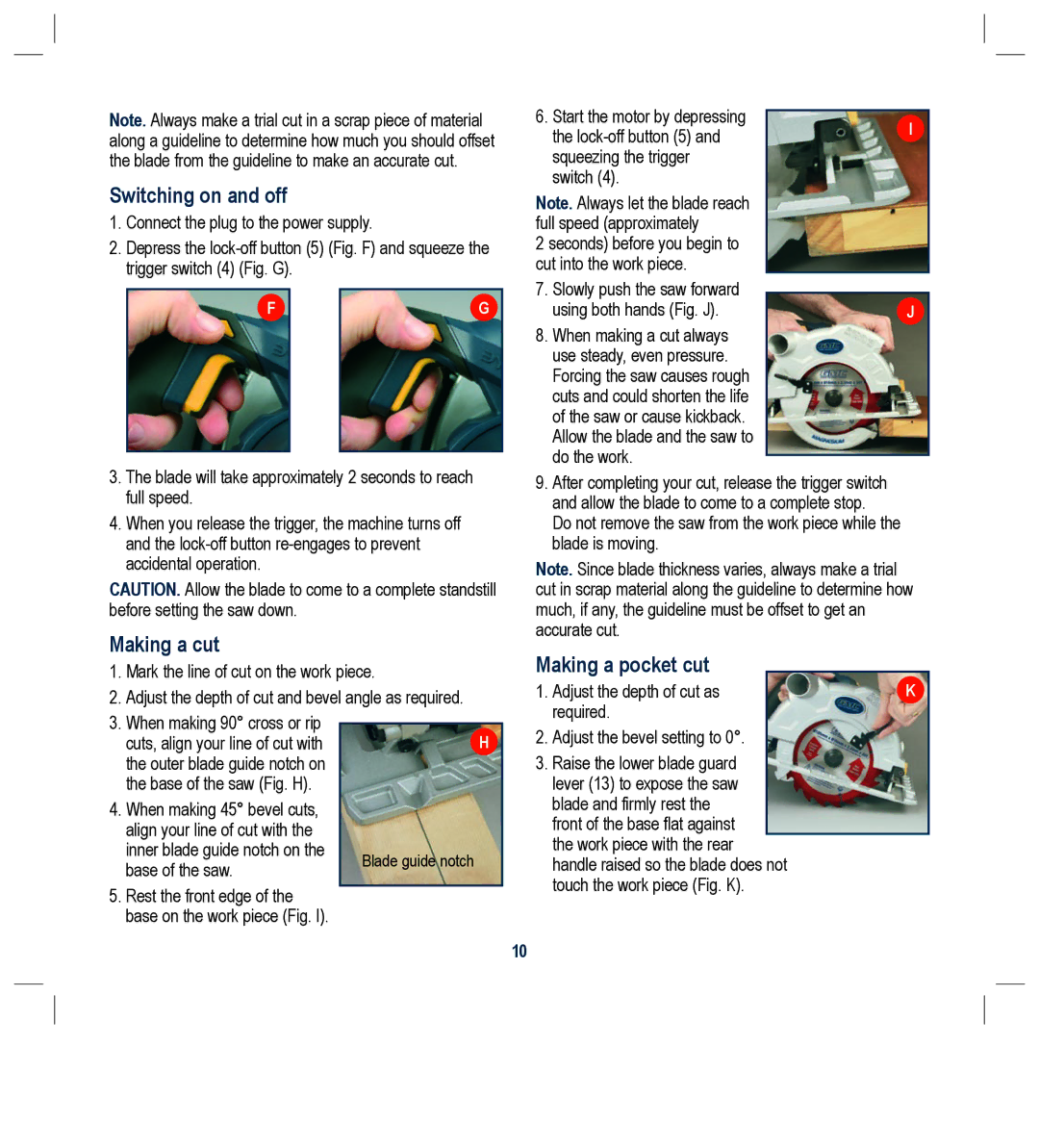
Note. Always make a trial cut in a scrap piece of material along a guideline to determine how much you should offset the blade from the guideline to make an accurate cut.
Switching on and off
1.Connect the plug to the power supply.
2.Depress the
F |
| G |
|
|
|
3.The blade will take approximately 2 seconds to reach full speed.
4.When you release the trigger, the machine turns off and the
CAUTION. Allow the blade to come to a complete standstill before setting the saw down.
Making a cut
1.Mark the line of cut on the work piece.
2.Adjust the depth of cut and bevel angle as required.
3.When making 90° cross or rip
cuts, align your line of cut with | H | |
the outer blade guide notch on |
| |
the base of the saw (Fig. H). |
| |
4. When making 45° bevel cuts, |
| |
align your line of cut with the |
| |
inner blade guide notch on the | Blade guide notch | |
base of the saw. | ||
|
5.Rest the front edge of the base on the work piece (Fig. I).
6. Start the motor by depressing
the
switch (4).
Note. Always let the blade reach full speed (approximately
2 seconds) before you begin to cut into the work piece.
7. Slowly push the saw forward |
|
using both hands (Fig. J). | J |
8.When making a cut always use steady, even pressure. Forcing the saw causes rough cuts and could shorten the life of the saw or cause kickback. Allow the blade and the saw to do the work.
9.After completing your cut, release the trigger switch and allow the blade to come to a complete stop.
Do not remove the saw from the work piece while the blade is moving.
Note. Since blade thickness varies, always make a trial cut in scrap material along the guideline to determine how much, if any, the guideline must be offset to get an accurate cut.
Making a pocket cut |
|
1. Adjust the depth of cut as | K |
required. |
|
2.Adjust the bevel setting to 0°.
3.Raise the lower blade guard lever (13) to expose the saw blade and firmly rest the front of the base flat against the work piece with the rear handle raised so the blade does not touch the work piece (Fig. K).
10
